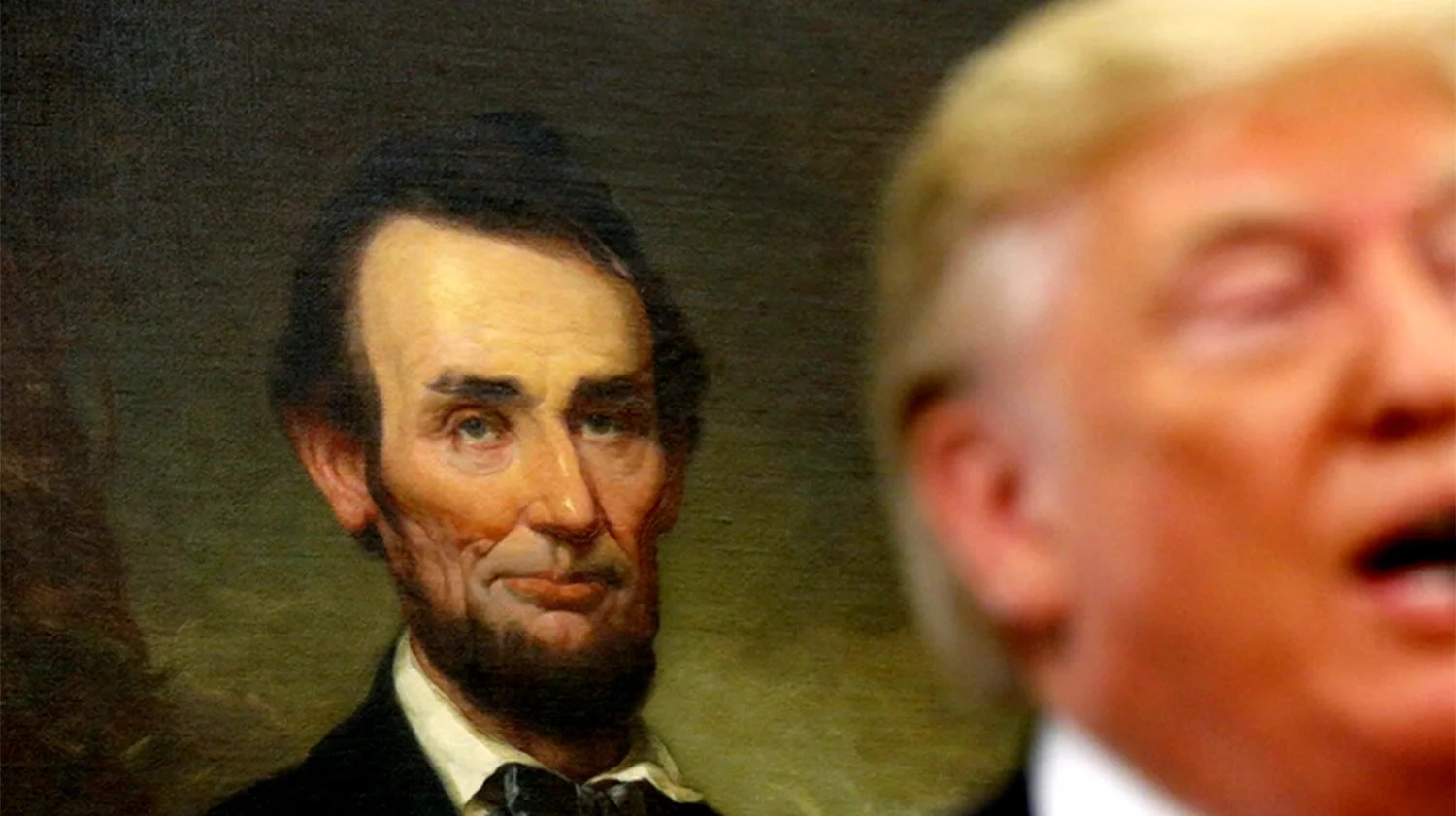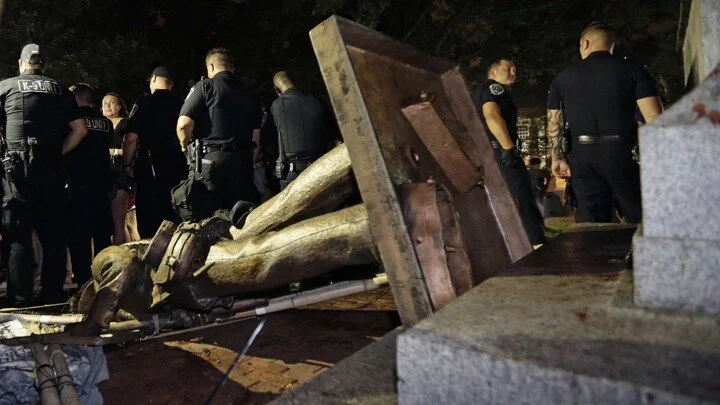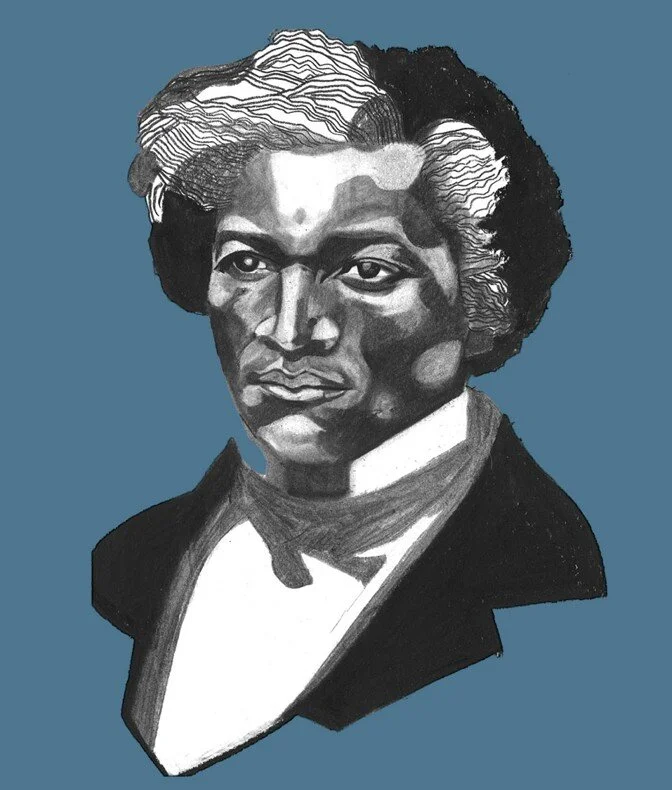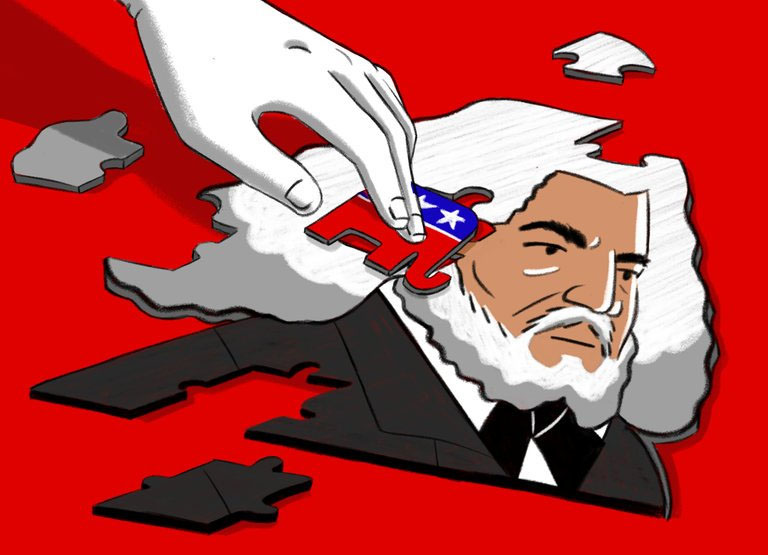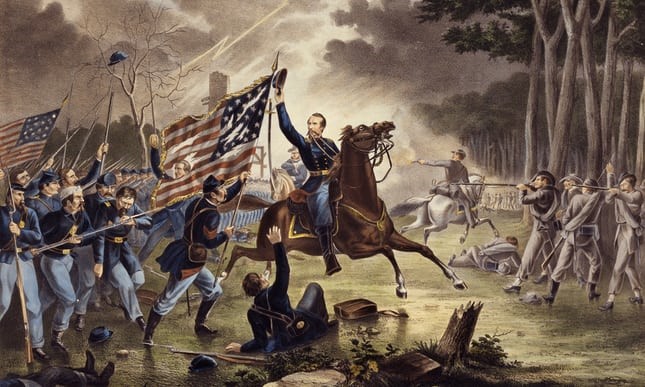Like Frederick Douglass, we can find inspiration for this moment in the oldest story of rebirth and renewal.
Those with power who are planning our resurgence from the coronavirus need imagination and, above all, the humility of a long view of the human drama. To buoy myself one recent morning, after reading so much bad news, I did what the great abolitionist Frederick Douglass had done at an earlier moment of crisis: I sat and reread the Book of Genesis. One of the most profound rebirths, at least in spiritual and literary terms, occurs in the first eight chapters of that oldest story of all.
Read MoreThe president is the latest in a long line of conservative politicians to see minority voters as a threat.
On March 30, the Republican id burst forth when President Trump said that the latest congressional stimulus bill “had things — levels of voting that, if you ever agreed to it, you’d never have a Republican elected in this country again.” Two days later, the Republican House speaker in Georgia, David Ralston, admitted that an expansion of absentee voting would be “extremely devastating to Republicans and conservatives in Georgia.”
Read MoreThe pandemic is reminding Americans of the importance of government.
In August 1861, several months after the secession of 11 southern states and the outbreak of the Civil War, the abolitionist Frederick Douglass declared that “nations seldom listen to advice from individuals, however reasonable. They are taught less by theories than by facts and events.”
The United States is currently being educated by facts and events. And, as in other times of crisis—war, economic collapse, natural disasters—even those who do not like government are realizing that they need it. Government can protect them; it might save their life and livelihood. Irony will not die in the time of the coronavirus; even many of those who believe the federal government should not intervene in society except for national defense, and would happily privatize most elements of public life, are now straining to have government save society. With this issue, we have a long history.
Read MoreFor three years Dan Kildee sat in David Blight’s high school classroom watching his teacher bring history to life. They didn’t even have to leave the building — though they did that too, like when Blight stood in the middle of a field at Gettysburg describing Pickett’s charge, the crucial maneuver in the Civil War’s most famous battle.
Read MoreThe University of North Carolina agreed to pay the Sons of Confederate Veterans $2.5 million—a sum that rivals the endowment of its history department.
On the eve of Thanksgiving, the University of North Carolina Board of Governors agreed to settle a lawsuit filed by the North Carolina division of the Sons of Confederate Veterans (SCV) over a Confederate monument that had stood for more than a century on the university’s flagship campus, in Chapel Hill, before demonstrators toppled it in August 2018.
Read MoreIn the immediate aftermath of the Civil War, he dreamed of a pluralist utopia.
In the late 1860s, Frederick Douglass, the fugitive slave turned prose poet of American democracy, toured the country spreading his most sanguine vision of a pluralist future of human equality in the recently re-United States. It is a vision worth revisiting at a time when the country seems once again to be a house divided over ethnicity and race, and over how to interpret our foundational creeds.
Read MoreHe would see the Republicans as the antithesis of everything he fought for.
In 2012, I took part in the Congressional Civil Rights Pilgrimage, an annual trip to Alabama led by Representative John Lewis. On a Sunday afternoon I walked across the Edmund Pettus Bridge in Selma next to Kevin McCarthy, now the Republican House minority leader, his wife and children at his side.
Read MoreIn “Reconstruction,” an essay published in 1866, Frederick Douglass argued that even as radical Republicans (former abolitionists and their supporters) gained control over America’s constitutional revolution, this might not matter “while there remains such an idea as the right of each state to control its own local affairs,” a notion “more deeply rooted in the minds of men … than perhaps any one other political idea.” What had to be done, Douglass said, was to “render the rights of the states compatible with the sacred rights of human nature.” As “Unexampled Courage,” Richard Gergel’s remarkable book about the early legal stages of the civil rights movement, makes clear, Douglass’s thrilling goal of natural rights and federal power combining to overwhelm states’ rights remained for nearly a century an unrealized dream. Perhaps it still is.
Read MoreIn the introduction to Frederick Douglass’s second autobiography, “My Bondage and My Freedom,” published in 1855, his friend James McCune Smith wrote that if a stranger landed in the United States and sought out its most prominent men by using newspapers and telegraph messages, he would discover Douglass. Born a slave in Maryland, Douglass had escaped to the North to become a renowned abolitionist orator and writer. He was, Smith said, the sort of person people would ask, “‘Tell me your thought!’ And somehow or other, revolution seemed to follow in his wake.”
Read MoreFor a century and a half Ulysses S. Grant has been a baffling and inspiring presence in the American literary and historical imaginations. Born in 1822 and raised by a pious Methodist mother, as a young man he was quiet, given to depressions, and lacking much ambition. Only his love of horses seemed to animate him and give him a reason to excel in his education at West Point, which his scheming father desired for him more than he did. In his thirties, he was a complete failure, at times a drunkard, destined to die forgotten. He found his vocation and success on America’s killing fields; his meteoric trajectory in the Civil War makes him a remarkable case of a nobody who became almost everything.
Read MoreThe Gilder Lehrman Center for the Study of Slavery, Resistance, and Abolition celebrated the 20th anniversary of its founding last Friday with a panel discussion on the life of Frederick Douglass, whose 200th birthday was also last week.
Read MoreTwo hundred years ago, one of the most important Americans was born close to the Tuckahoe River on the Eastern Shore of Maryland. Frederick Bailey didn’t know the exact date of his birth, so he chose Feb. 14. Twenty years later, when he escaped from slavery, he became Frederick Douglass. By the time of his death in 1895, he had become one of the greatest orators and writers of the century.
Read MoreImpeaching an unfit president has consequences. But leaving one in office could be worse.
In recent months, I have grown obsessed with a seemingly simple question: Does the American political system have a remedy if we elect the wrong person to be president? There are clear answers if we elect a criminal, or if the president falls into a coma. But what if we just make a hiring mistake, as companies do all the time? What if we elect someone who proves himself or herself unfit for office — impulsive, conspiratorial, undisciplined, destructive, cruel?
Read MoreWhite House Chief of Staff John F. Kelly was the guest for the premiere of Laura Ingraham’s new show on Fox News Channel on Monday night. During the interview, he outlined a view of the history of the Civil War that historians described as “strange,” “highly provocative,” “dangerous” and “kind of depressing.”
Read MoreTwo months after President Trump stirred fierce debate with a defense of Confederate monuments, his chief of staff, John F. Kelly, has waded back into the fray of Civil War history.
Read MoreThe years leading up to 1861 saw polarised politics, paranoia and conspiracy theories. Sound familiar? David Blight reflects on America’s Disunion – then and now
“I tremble for my country when I reflect that God is just,” Thomas Jefferson wrote in 1781. The American revolution still raged, many of his own slaves had escaped, his beloved Virginia teetered on social and political chaos. Jefferson, who had crafted the Declaration of Independence for this fledgling nation at war with the world’s strongest empire, felt deeply worried about whether his new country could survive with slavery, much less the war against Britain. Slavery was a system, said Jefferson, “daily exercised in tyranny,” with slaveholders practicing “unremitting despotism”, and the slaves a “degrading submission”.
Read MoreA day after the brawling and racist brutality and deaths in Virginia, Governor Terry McAuliffe asked, “How did we get to this place?” The more relevant question after Charlottesville—and other deadly episodes in Ferguson, Charleston, Dallas, St. Paul, Baltimore, Baton Rouge, and Alexandria—is where the United States is headed. How fragile is the Union, our republic, and a country that has long been considered the world’s most stable democracy?
Read MoreEver since Donald Trump became President I have believed his greatest threat to our society and to our democracy is not necessarily his authoritarianism, but his essential ignorance - of history, of policy, of political process, of the Constitution. Saying that if Andrew Jackson had been around we might not have had the Civil War is like saying that one strong, aggressive leader can shape, prevent, or move history however he wishes well into the future.
Read MoreThroughout modern history, the millions forced to flee as refugees and beg for asylum have felt Douglass’s agony, and thought his thoughts.
Frederick Douglass, author, orator, editor, and most important African American leader of the 19th century, was a dangerous illegal immigrant. Well, in 1838 he escaped a thoroughly legal system of enslavement to the tenuous condition of fugitive resident of a northern state that had outlawed slavery, but could only protect his “freedom” outside of the law.
Read MoreA century and a half after the Civil War, the process of Reconstruction remains contested—and incomplete.
The Reconstruction era was both the cause and the product of revolutions, some of which have never ended, and likely never will. Lest this seem a despairing view of U.S. history, Americans need to remember that remaking, revival, and regeneration have almost always characterized the U.S., its society, and its political culture. But no set of problems has ever challenged the American political and moral imagination—even the Great Depression and the World Wars—quite like that of the end of the Civil War and the process of Reconstruction.
Read More

